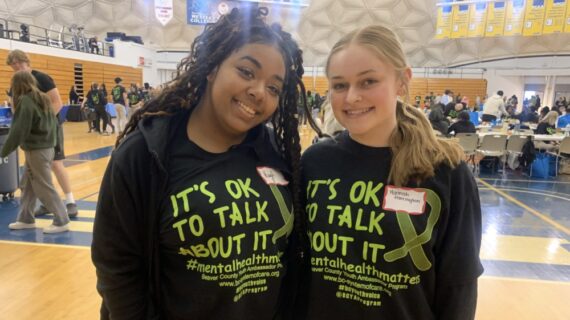
ADHD: what to know and where to get diagnosed in the Pittsburgh area
Photo above by Robo Wunderkind via Unsplash.
If you’ve ever wondered if your child has ADHD, you’re not alone. It can be hard to know whether a backpack stuffed with forgotten permission slips or frequent distraction means your child just needs to learn to be more organized or the child needs a bit more support.
An estimated 6 million children between the ages of 3 and 17 were diagnosed with ADHD between 2016 and 2019, according to the CDC. That number continues to grow as more parents and caregivers seek support for their children. But talk to a few different people who’ve sought a diagnosis and you’ll hear a wide range of experiences.
One parent from the north Pittsburgh suburbs told Kidsburgh that after long wondering whether their child had ADHD, they approached their child’s school with concerns each year. They were regularly told that their child was doing fine in school, so no screening was needed. But once the parents were able to get a screening, their child was quickly diagnosed with ADHD.
Meanwhile, another parent from Allison Park has two diagnosed children who have had two very different experiences. The first child had a battery of assessments done in a neuropsychologist’s office and an extensive interview. The second child was diagnosed during the pandemic, so the family “met with a psychologist for a couple of hours with interviews over Zoom.” The older child had been referred for testing by the family’s pediatrician, while the younger child had been referred by the therapist.
WHO CAN HELP?
There has been much debate over whether too many kids are being diagnosed with and medicated for ADHD, when they are presenting challenging behaviors or coping with anxiety. At the same time, some children in need of diagnosis are missed. It can be difficult for parents to find that there isn’t a straightforward, recommended route for obtaining an ADHD diagnosis for a child.
“There truly is not only one route,” says Christina Jolley, a registered nurse practitioner who evaluates, diagnoses and treats children at the behavioral health clinic at Pittsburgh’s Children’s Institute.
If the child is already under the care of a therapist, the therapist may be able to provide the diagnosis. Parents can also reach out directly to a psychiatric provider, like Jolley, or they can talk with their pediatrician. Most parents start there.
“I encourage people to talk with their pediatricians,” she said, although caregivers should keep in mind not all pediatricians are comfortable diagnosing and treating ADHD. Some do diagnose and treat, whether that means prescribing medication, recommending therapy, or both. Others are more comfortable handling only the diagnosis or the treatment. And other pediatricians may refer kids elsewhere for anything regarding mental health.
What if you want to skip the pediatrician and work directly with a mental health provider? Although a psychiatric provider would contact your pediatrician to get releases and close the communication loop, you can start directly with a psychiatric provider. This could be a counselor, psychologist or social worker, including a LPC (licensed professional counselor) or LCSW (licensed clinical social worker), who may be comfortable making an ADHD diagnosis.
If they have concerns that another diagnosis may be interfering or they feel additional testing would be helpful, a counselor or social worker might call in a fellow mental health professional who is better able to assess the situation.
WHAT’S AN EVALUATION SESSION LIKE?
Parents can expect to start with a conversation, including questions about hyperactivity, impulse control, and organization. Some of these questions might be answered in the form of questionnaires (like this one) that are filled out by the parents or caregivers. The same questionnaires might be sent to the school, as well, to get a teacher’s perspective.
“We want to make sure ADHD is exhibited in a couple of different settings,” Jolley says, “because that helps us to confirm that it’s not something else like anxiety or a learning disorder, and that helps confirm the validity.”
Occasionally, mixed results or factors like anxiety or learning disorders can complicate the diagnosis. In that case, an assessor might call in a psychologist to do more extensive testing. “They’ll pull in different types of assessments and standardized measures to more deeply assess things like IQ, executive functioning and social communication, among other things,” Jolley says.
Jolley emphasized that teachers and school staff are a key part of the child’s team, as well.
“They can’t diagnose, but they’re seeing the kid over how many hours over how many weeks,” she says, “and they have a good pulse on what behaviors are developmentally appropriate.”
She sees many parents who seek support because their child’s teacher has picked up on certain behaviors.
How long should parents expect to wait for a diagnosis once they’ve gotten an appointment? It depends.
Things may move relatively quickly “if the front office staff has sent the checklist and they’re already completed and returned, and the caregiver is able to share clear feedback and we’re able to kind of establish that it’s not something else,” Jolley says.
But “for the sake of doing our due diligence, we take the time to get feedback from different settings and review it all,” she says.
Going slowly is valuable to ensure that a child isn’t being diagnosed and even medicated when they don’t need to be, and also to ensure that kids who do struggle with ADHD aren’t missed.
The CDC’s data shows boys are more than twice as likely as girls to be diagnosed with ADHD.
Jolley sees boys being more hyperactive or impulsive, which teachers and parents notice. The adults may be more likely to assume ADHD is the issue.
In contrast, Jolley says, “typically, I see girls sitting and appearing to be on task, but internally they’re struggling to focus. That’s not as noticeable from a classroom management perspective though, so we miss it more.”
Though it can seem complicated initially, talking with a child’s pediatrician or therapist is a good way to start on the road towards an evaluation for ADHD, and to open conversations about the variety of treatment options and supports available.











